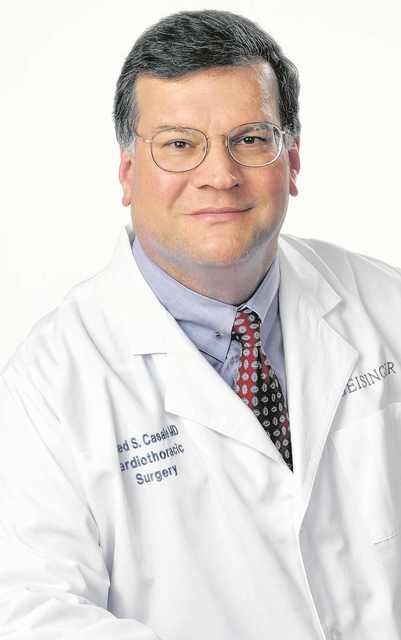Click here to subscribe today or Login.
What a great Christmas I had! Mary and I were entranced by our 12-week-old granddaughter, Rowan. Kate and her husband, Andy, were with us and the time together was a great tonic for us all. Now that they’ve gone home and I’m back at work, it seems right to make some plans for the year ahead. As you prepare resolutions for the New Year, reviewing some tips I offered last year might help. These are modest goals but important to improving your wellness. Pick a few, or all and recommit.
Tip #1: Get more sleep
Getting seven to nine hours each night can improve your overall mood, help you think clearly, improve memory and lessen risk of injuries. Sleeping a sufficient amount can help thwart health problems in the future. Many studies have found a link between insufficient sleep and some serious health issues, including heart disease, diabetes and obesity.
Tip #2: Drink more water
Your body is made up of 60 percent water and every system in your body depends upon hydration, including digestion, absorption, circulation, transportation of nutrients and body temperature. Even mild dehydration can drain your energy and make you tired. Drinking plenty of water can also improve the appearance of your skin, help control calorie intake and improve the performance of your kidneys.
Tip #3: Reduce your intake of processed foods
Generally, food that comes in packaging is not your best option. Processed foods are high in sugar, high fructose corn syrup, refined carbohydrates, sodium or trans fats and low on nutrients and fiber. Cook yourself! Try out some recipes.
Tip #4: Get your shots
Along with an annual flu shot, make sure you’re up to date on your TDaP (tetanus, diphtheria and pertussis aka whooping cough) booster shot. Even if you received this as a child, you need a booster as an adult. You also need a tetanus booster every 10 years. Older folks should consider shingles and pneumonia vaccines and baby boomers should talk about Hepatitis C testing.
Tip #5: Check yourself
Take time each month to look closely at your skin. Look for moles that have changed shape or grown. If you find anything that concerns you, schedule a visit with your primary care provider, a dermatologist or a plastic surgeon. Women should make sure they’re performing regular breast exams and men should perform testicular self-examinations and have any masses checked.
Tip #6: Eat breakfast
Breakfast does indeed seem to be the most important meal of the day! If you skip breakfast, you’ll be hungry long before lunchtime, leading to snacking on foods high in fat and sugar. Eating breakfast is proven to help control weight.
Tip #7: Ditch soda
Soda, even if it’s the diet variety, plain and simple, isn’t good for you. It’s been linked to numerous health issues, including weight gain, poor dental health, diabetes and cardiovascular disease. Substitute water, fruit or vegetable juices in moderation.
Tip #8: Get moving
Go for a walk in the afternoon, park farther away from the door or take the stairs. Exercise options are endless: walking, dancing, gardening, biking, even household chores. Find an exercise that you genuinely enjoy. Exercise is associated with improved mood, a stronger immune system, better sleep and a decreased stress level. And there’s no arguing that exercise can help you lose weight.
Tip #9: Know your numbers
Just like 911 and your anniversary date there are three other potentially life-saving numbers you should know: blood pressure, cholesterol and waist size. Keeping the characteristics they measure within a healthy range can keep your heart healthy. If too high, the risk of developing cardiovascular disease and other serious health complications skyrockets.
Tip #10: Visit your doctors
Regular exams help your doctor get an idea of your overall health, so if something unusual pops up, your doctor can catch it early. Your doctor can help decide if screening tests like mammograms, Pap smears, prostate testing, colonoscopy, cardiac stress tests or CAT scans are appropriate.
And don’t forget about using seatbelts, holding railings, not smoking, avoid running with scissors and all the common sense things we know but too often neglect. Commit to be mindful and attentive.
The best way to become healthy and stay healthy isn’t by making drastic changes overnight – that can be hard to maintain. Make small, lasting, significant, changes and stick to them and watch how great you feel.
I hope you have a wonderful celebration of the year past and to come!








